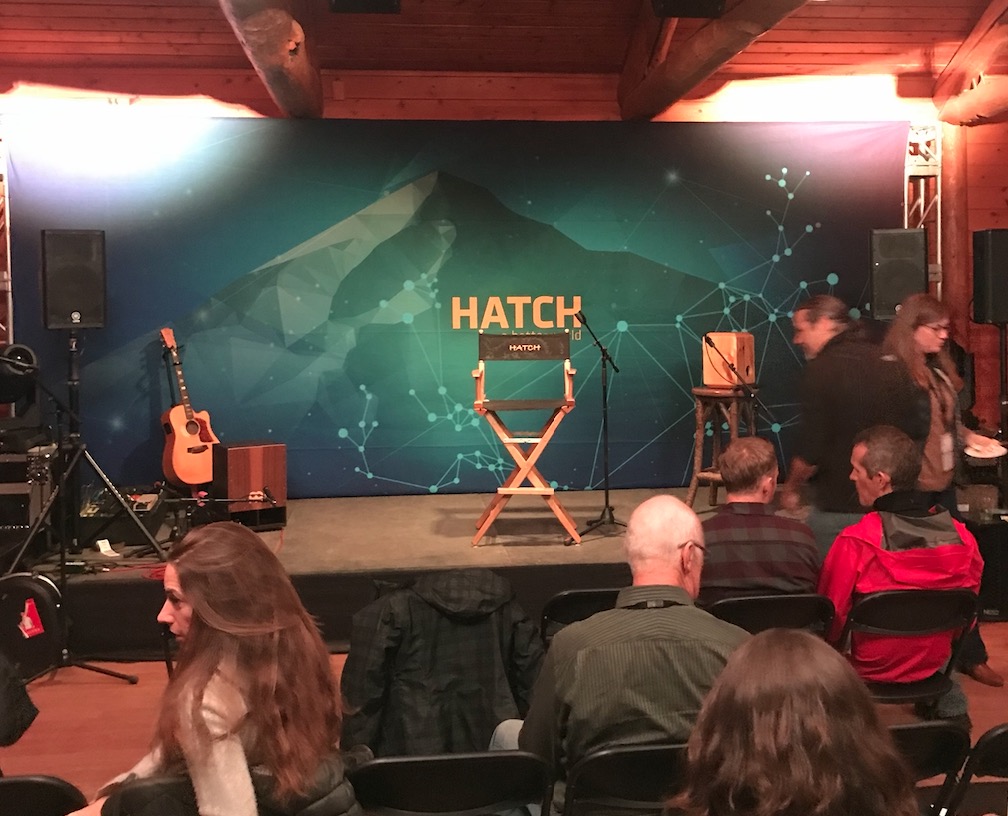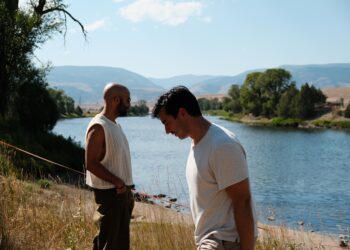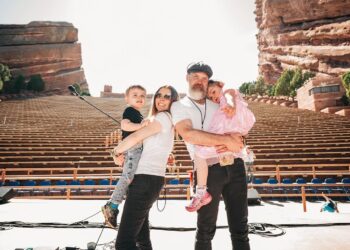EBS STAFF
EMIGRANT – Somewhere at the intersection of a TED Talk, a think tank, a professional networking event and, in many respects, a Ken Kesey party, lays HATCH.
To reduce the event to single descriptors or with comparisons to loosely related events is near impossible, working against the very current of creative fluidity that HATCH evokes for every attendant.
And at the helm is Bozeman native Yarrow Kraner, an industry-shaking titan of forward thinking.
Having grown up in Bozeman, where he went to high school and attended Montana State University, earning degrees in film and marketing, Kraner has pocketed a remarkable wealth and breadth of accolades and experiences. He’s directed Levi’s commercials and projects with Dwayne “The Rock” Johnson, created the “original online community,” and has been ranked among the top 100 creative people in the U.S., to name a few.
Said online community, Superdudes, founded in 1999 and which grew to over 1.5 million users at its peak, planted the seeds for Kraner’s passion in facilitating meaningful networks of movers and shakers, industry shapers and the creatively minded—so following Superdudes’ 2003 sale to FOX, part of a bundle with MySpace to the tune of $580 million, Kraner put those networking principals to practice with HATCH.
“HATCH is a network of networks, it’s a network of network activators. It’s systems thinking, right? If we can bring in the fulcrum influencers at these different load-bearing structures in this system, and impact them and send them back out, it creates big ripples wherever they exist,” Kraner said.
He terms the phenomenon “mycelium” in homage to the connective networks formed by fungi, increasingly thought to facilitate information transfer among various members of a forest and other biomes within the plant world. A naturally occurring “neuro-network” Kraner said.
HATCHers come in all shapes and sizes, interests and influences, a fact completely by design. On a “Time4Coffee” podcast interview, Kraner told host Andrea Koppel he seeks to curate an assembly of individuals that, should a meteor strike destroy the rest of the world during a HATCH gathering, the attending cohort could thoughtfully and sustainably rebuild society.
At HATCH Montana 2019, hosted over the course of five days at Emigrant’s Mountain Sky Guest Ranch beginning on Oct. 13, one might be just as soon chatting with Marques Anderson, a former third-round draft pick NFL safety turned entrepreneur and philanthropist, as with Jeremiah Thomas Pate, a 20-year-old mathematician who placed college on hold to found his company that is slotted to launch not one, but 12 satellites that will revolutionize mankind’s ability to detect and map subterranean resources.

Turn the corner and one might end up conversing with Kat Magill, a slam poet; John McKee, owner and founder of Butte’s Headframe Spirits and Headframe Spirits Manufacturing; Mustafa Osman Turan, the deputy director general for Multilateral Economic Affairs under the Republic of Turkey’s Ministry of Foreign Affairs; or Andrea Eastman, former head of casting at Paramount Pictures, where she casted for “The Godfather” and “Story,” as well as represented the likes of Richard Gere, Billy Crystal, Sylvester Stallone, Burt Reynolds and Dustin Hoffman, among others.
Their reasons to attend the event, which is invite-only to maintain the sense of a responsibly-growing community and to stay at or less than 150 individuals, Dunbar’s number, a cognitive limit on the number of individuals to maintain stable social relationships, remain consistent.
“HATCH is a perfect incubator for the very best parts of humanity, what we all aspire to be—it’s innovation, it’s inspiration and it’s conviction with a dash of empathy and compassion,” said Jess Phoenix, a world renowned geologist, founder and executive director of Blueprint Earth, a nonprofit environmental scientific research organization, and a fellow of the prestigious New York City-based Explorer’s Club.
“I was first invited about six years ago. I had been so focused on building businesses for the previous 30 years, I barely recognized there was a world outside,” said Susan Carstensen, cofounder of Yellowstone Growth Partners and former COO and CMO of RightNow Technologies.
Now imagine that interdisciplinary assembly of humans is broken into smaller groupings, tasked with creating actionable solutions to some of society’s most pressing issues through a mixed bag of values, perspectives and talents only wrought by what Kraner describes as a “diagonal” swathe of humanity represented in each. Further, the HATCH team deliberately groups individuals based on expected ability to collaborate meaningfully, through “10,684 hours of collective life force,” Kraner said.
Those hours were shared between the 125 HATCHers from 10 countries forming the backbone of the 24th HATCH summit, where groups toiled over labs titled “Trailblazing a New Era of Ag,” “Unlocking Compassion in Prisons,” “Bio-engineering Plastics,” “Equipping Young Adults” and “Leverage Points for Global Challenges,” to name a smattering.
On the final night, Oct. 16, the groups presented findings and solutions, seeking “asks”: imploring the non-presenting HATCHers to tap their resources—human, experiential, corporate, financial, etc.—to aid their blueprints to the point of fruition.
“We’re really cultivating a culture of reciprocity,” Kraner said.
It’s a rare sight to see adults collaborate in this manner, summoning an openness and whimsy that is usually reserved for the interactions of children, who ultimately lose that ability to the passing of time and entering into the more rigid structures of condoned adult thinking and problem solving.
Among those in attendance, forming one of HATCH’s primary cornerstones, were the “NextGens,” gifted teens and young adults making change and ripples of their own. Often, mentorship bonds are formed at the event, with an adult taking a NextGen under wing due to recognition of shared beliefs, passions and ability to inject the wisdom from their own experience into the NextGen’s work.
“They tell you to come with an ‘ask-offer,’” said Henri Solomon Stern, 20, one of the 17 NextGens in attendance and a student at Stanford University. “So my ‘ask’ was to have someone help me navigate the environmental nonprofit world … it’s been really inspiring to be surrounded by people that have taken very diverse paths.”
“To me, HATCH means opportunity, connection, future and determination. HATCH is an experience that only occurs once in a lifetime. It is one of those experiences which offers you the opportunity to be you, and to contribute your grain of sand regardless of your age or your social status,” said Lone Peak High School student Samantha Suazo, an attending NextGen student, in a testimonial released by the HATCH team.
On that final night the HATCHers, young and old, danced to live music, closed the loop on intellectual discussions with newly made compatriots, drank and were merry, relishing in what they had gained for themselves but perhaps conceived for the betterment of society as a whole.
Kraner, looking onto a throng standing by the guest ranch bar, seemed a proud parent watching nearly 17 years of maturing manifest. Five words form not only his impression, but also underscore the engine behind it all:
“The world needs more HATCH.”














